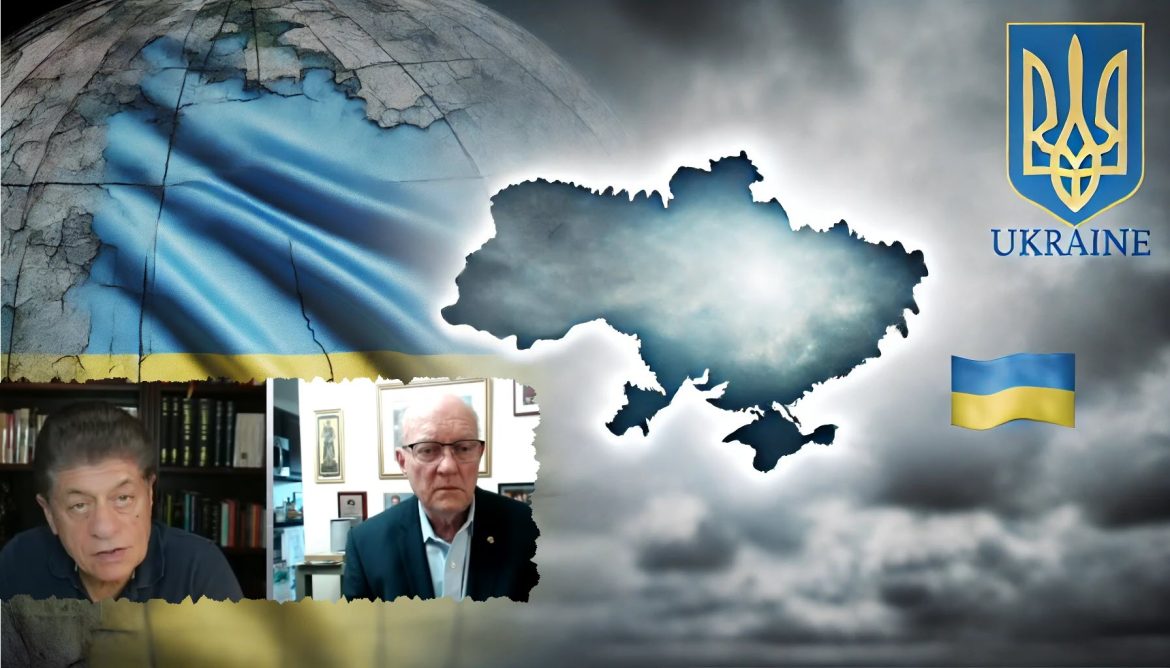In a compelling discussion, retired Colonel Lawrence Wilkerson and Judge Andrew Napolitano examine the resilience of Ukraine as it navigates the relentless pressures of ongoing conflict. As Ukraine faces sustained military aggression and significant challenges to its national sovereignty, questions about the country’s future have sparked wide-ranging debates in the international community.
Wilkerson, a former Chief of Staff to Secretary of State Colin Powell, brings his extensive military and diplomatic experience to the discussion, highlighting the geopolitical and structural difficulties Ukraine faces. He points out that Ukraine’s survival is contingent on several factors, including international support, economic stability, and internal political cohesion. Wilkerson underscores that while Western nations, including the U.S. and NATO allies, have provided substantial military aid and resources, the long-term sustainability of such support remains uncertain. He suggests that Ukraine may face increasing pressures to negotiate with Russia if international support wanes or if the conflict persists without resolution.
Judge Andrew Napolitano, known for his critical views on U.S. foreign policy, adds that Ukraine’s reliance on foreign aid may not be a sustainable path. Napolitano questions the ethical and political ramifications of prolonged Western intervention, arguing that continued support without a clear end strategy could lead to deeper entanglement in the region. He contends that while the West’s support has been essential for Ukraine’s defense, it might also delay crucial peace negotiations, potentially prolonging the conflict. Napolitano expresses concern that, without a diplomatic solution, Ukraine could face devastating long-term consequences, affecting not only its sovereignty but also its capacity to rebuild and stabilize.
Both experts discuss the socio-political challenges within Ukraine itself, emphasizing that internal unity will be a critical determinant of its survival. Wilkerson notes that Ukraine’s government must work to maintain public morale and unity amid the strain of war, as national resilience will be vital in the face of adversity. Napolitano concurs, pointing out that Ukraine’s leaders will need to balance the demands of war with the needs of their people, as the ongoing conflict has severely impacted the economy and infrastructure, leaving millions of Ukrainians displaced or in poverty.
The conversation then turns to Russia’s objectives and the potential for a negotiated settlement. Wilkerson argues that a diplomatic solution, though difficult, might be the only path to preserve Ukraine’s territorial integrity. He posits that a neutral or demilitarized Ukraine, one not aligned with NATO or Russia, could be a possible compromise, though he acknowledges that such a solution may be politically challenging. Napolitano agrees that diplomacy may be the only realistic way forward, but he cautions that Ukraine may be left with difficult concessions if it pursues peace talks with Moscow.
As the discussion concludes, both experts reiterate the importance of strategic decision-making for Ukraine’s leaders and allies. Wilkerson and Napolitano agree that Ukraine’s future hinges not only on military might but also on diplomatic ingenuity and internal resilience. For Ukraine to survive as a nation, it will require a delicate balance of international support, effective leadership, and a commitment to peace — a challenging but not impossible endeavor.
Image created by ChatGPT AI.



